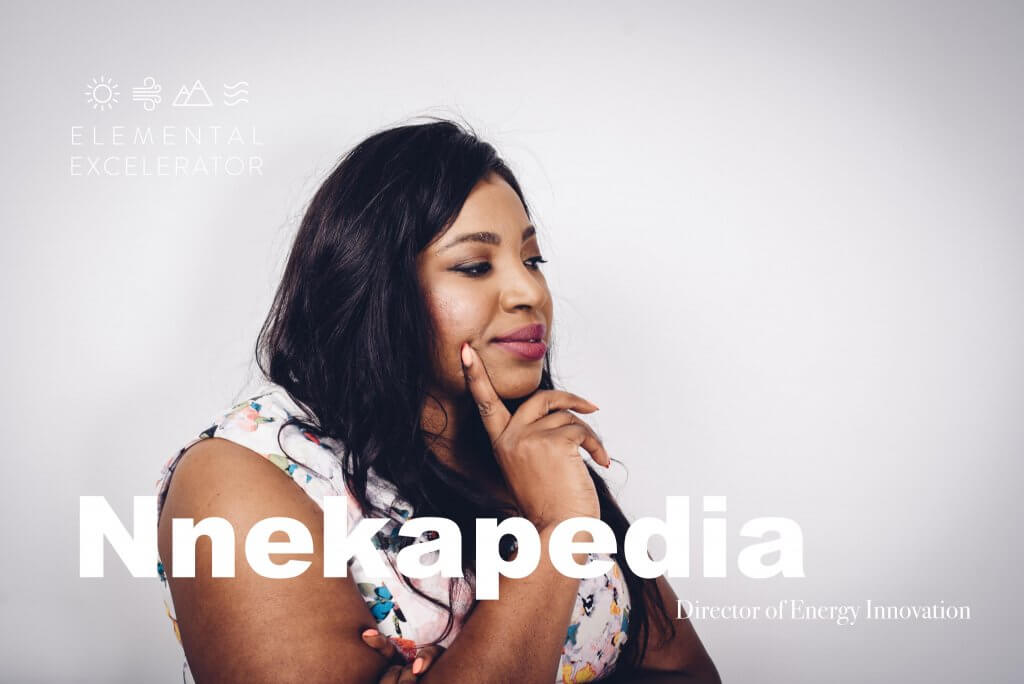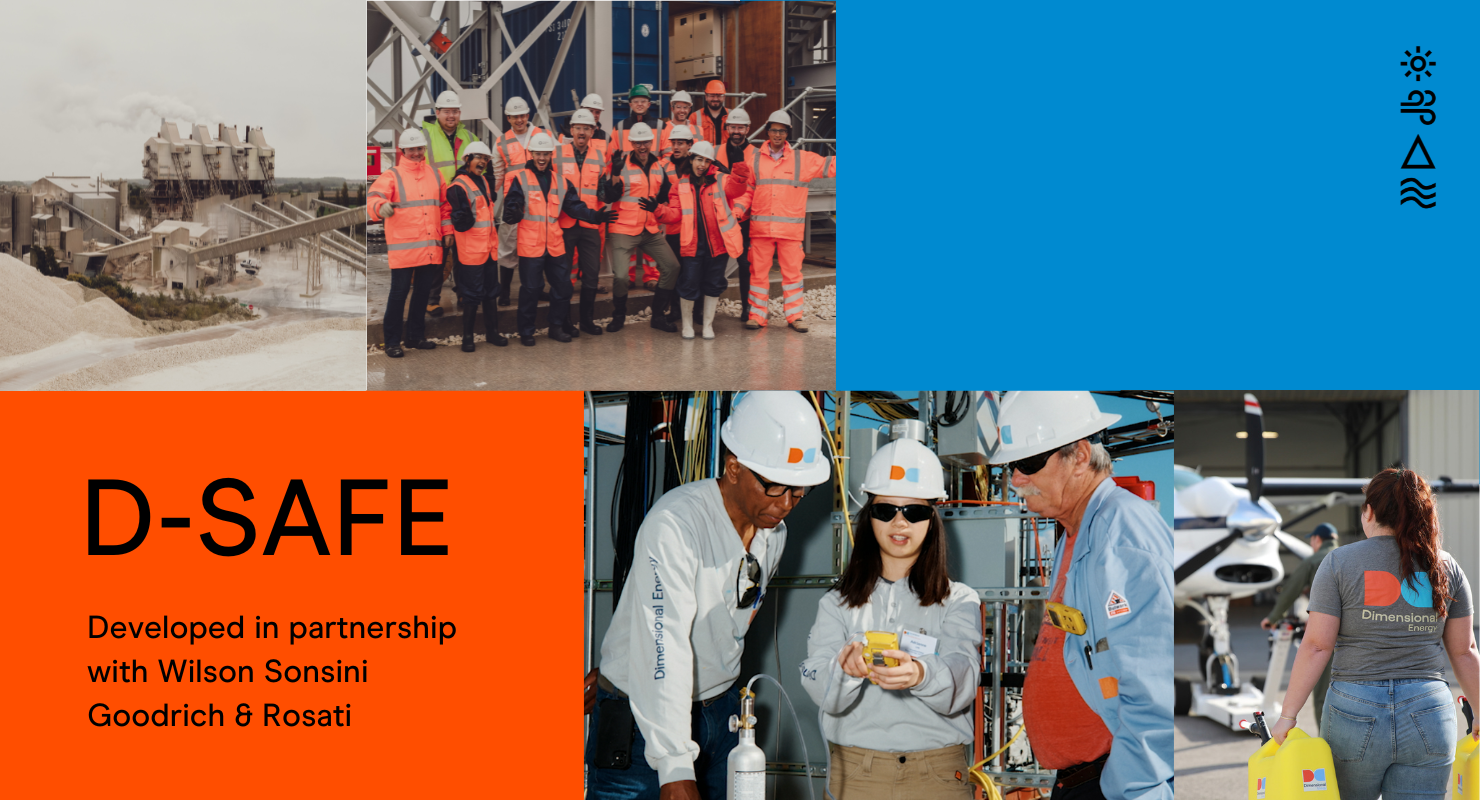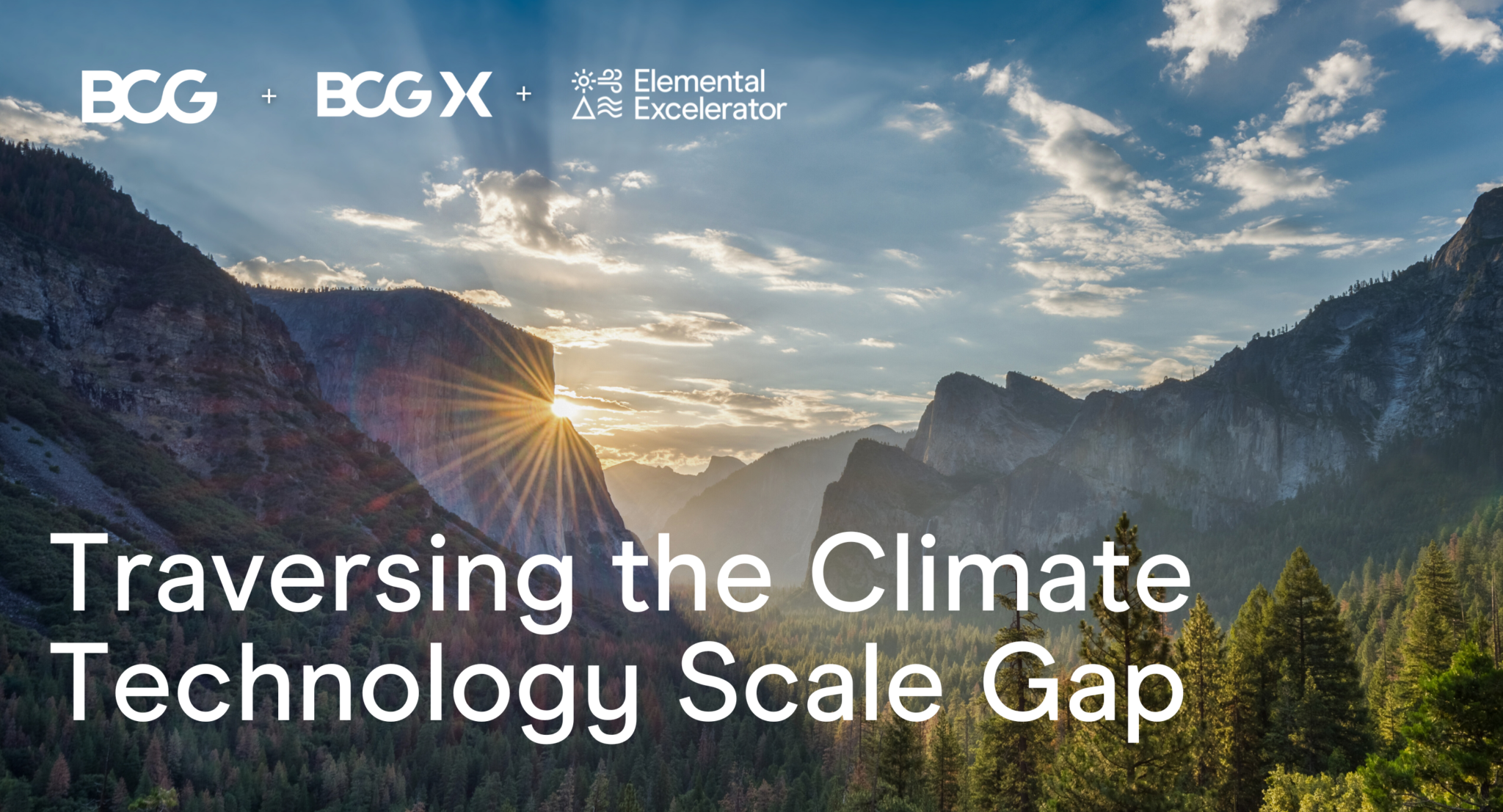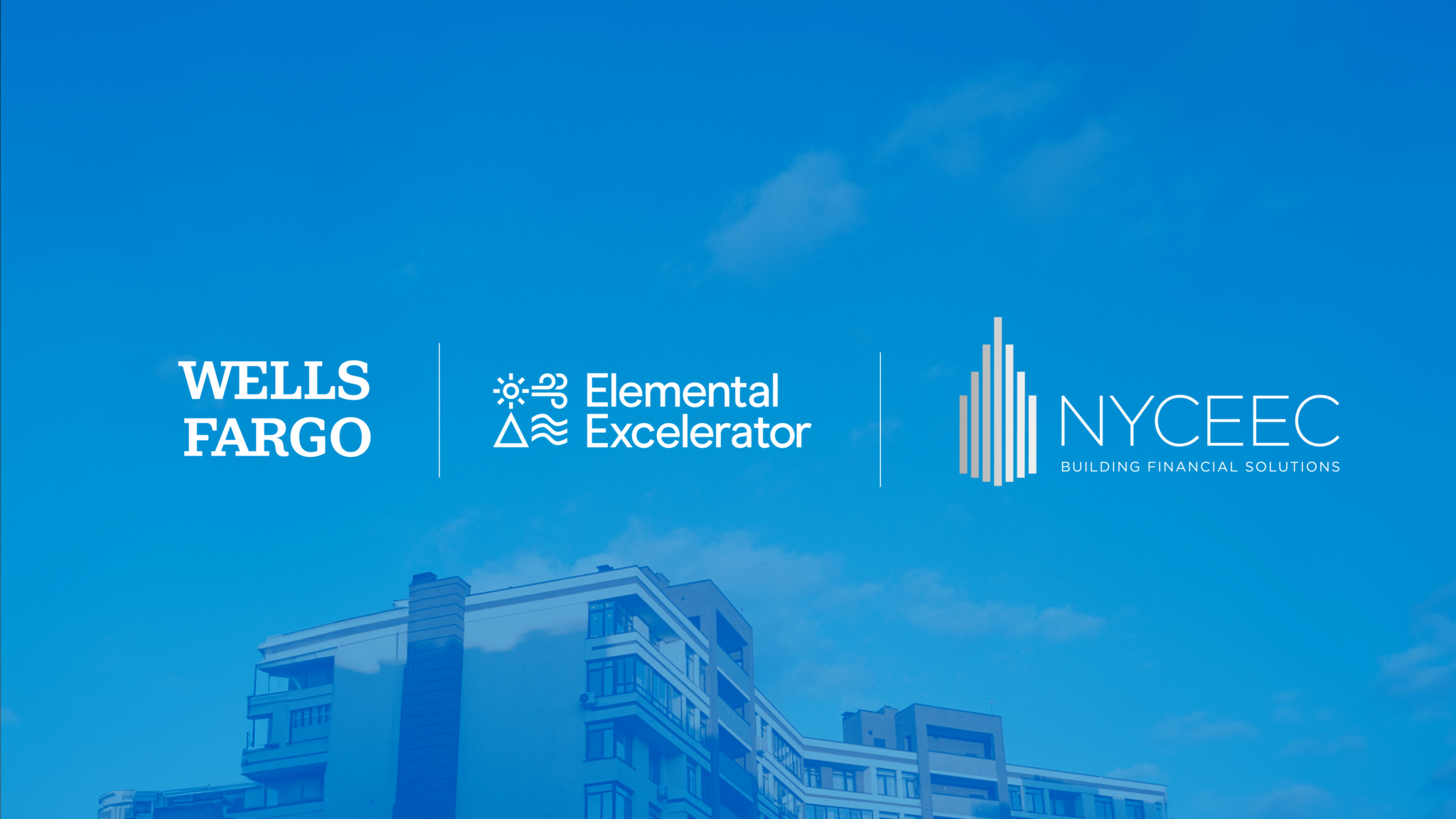
We often think about what we do at Elemental as building a machine for deploying climate technologies. Over the past decade that we’ve been at this work, though, we have learned again and again that innovation is really about people, not just technology. The why behind what people choose to do is the driver of progress. It’s an engine steered by ingenuity, but powered by hearts.
So why do we do what we do? Here, Nneka Uzoh, our Director of Energy Innovation, shares what drew her into her work, why Elemental is the right venue for the change she wants to see in the world, and what she’s excited to see flourish in 2020. This is part of a series of profiles that, as we recruit and get to know our next cohort of entrepreneurs, we hope will help you get to know us.

What made you want to work in the energy field?
My family is from Nigeria, a country that is rich in resources but has not rolled out adequate infrastructure to support its population of more than 200 million people. The smell of kerosene-powered generators is imprinted in my memories, and I learned from an early age how the quality of people’s lives is affected by electricity and infrastructure insecurity. As a result I was inspired to work in the energy field, which I love because it sits at the nexus of humanity, politics, business, and technology. Although food, shelter, and safety sit at the base of Maslow’s hierarchy of needs, energy enables all of those things.
In addition to energy, I’ve studied finance, business strategy, and innovation, so I am very interested in any work that also accelerates operational scaling and financial innovation. Much of my work history was at large energy companies where the projects I worked on directly affected millions of people.
What do you hope to achieve through your work at Elemental and with our portfolio companies?
Established institutions need startups more than ever. There are so many ways to improve the nimbleness, affordability, and equity of our energy systems. But many of those ideas will necessarily spring up outside the realm of what large corporations, who often lack the ability to drive dramatic change internally, can do. Which is understandable, because they set up their organizations with thorough consideration for public safety and system reliability, and optimization for large and disparate groups. These positive intentions, along with outdated regulatory frameworks, have slowed the pace of innovation. The adage that “when you optimize for all, you design for none” rings true here. There are many climate-focused startups that can astutely design these solutions, but they need more capital and relationships with the right people.
I love that through my work at Elemental Excelerator I can help solve these issues for both groups by building connections between the startups that are ushering in dynamic change and structuring and de-risking projects that allow for large corporates, industrials, utilities to move swiftly.
What areas are you focusing your efforts on in 2020?
- Industrial and manufacturing solutions. The industrial sector uses more energy than any other sector, about 54% of the world’s consumption. B2B technologies that help reduce the resource intensity and green the energy supply chain through digital twin, AI/machine learning, or novel technology is very intriguing since these processes are typically capital intensive with a narrow profit margin.
- Democratizing access. Energy poverty is not solely relegated to developing nations. There are many studies that show that the poorest among us pay the most for electricity. Since access to clean energy or energy efficiency tools should not be hindered by economic status, I’m interested in technologies that support equitable access to energy.
- Enabling technologies. Power without a purpose is meaningless. Energy-based technologies can make it easier or cheaper to grow food, pump water, or move through society. Using clean-energy technologies to amplify the effects in other fields is an important avenue of collaboration as we strive towards resilience.
- Community resilience. Global societal, geographic, and climate events that were once incredibly rare are becoming commonplace. Our ability to thrive as a civilization is heavily dependent on how we plan for the future, protect the current infrastructure, and rebound from disasters. In the same way that cords made of three strands are not easily broken, communities, industry, and government are more resilient when they work together. Any energy-related innovation that supports this mission is of great importance to me.




